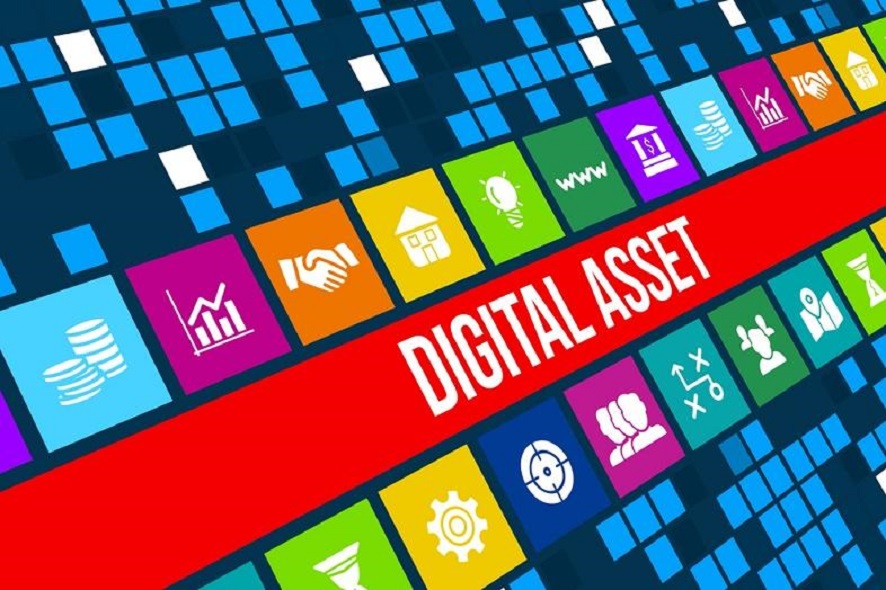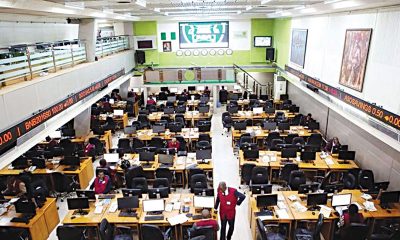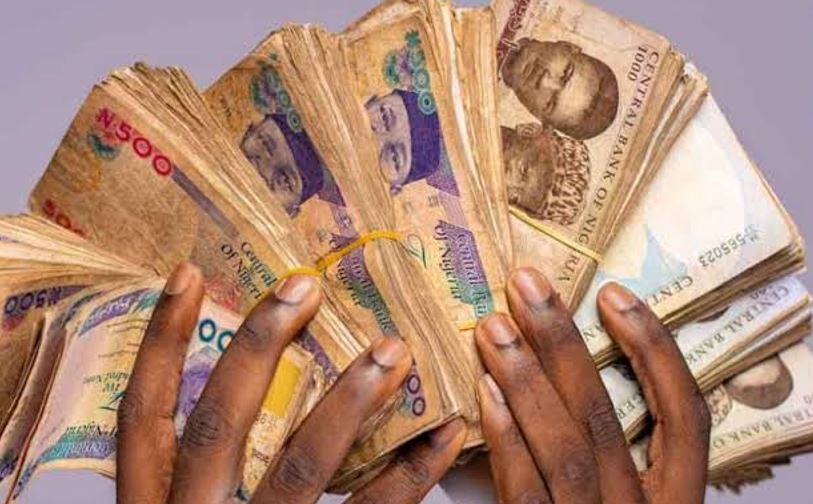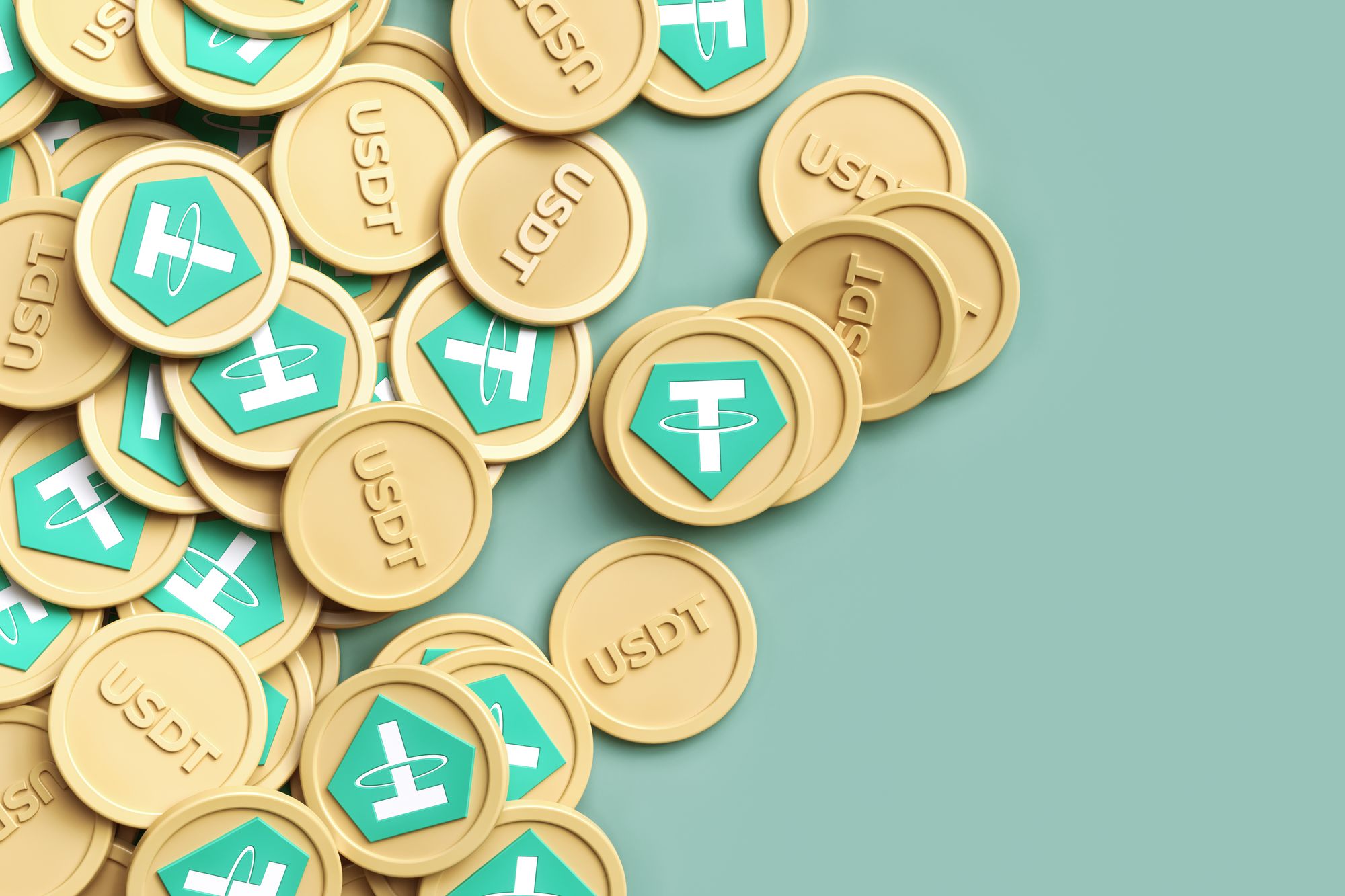Economy
The Impact of Digital Asset Trading Market on Nigeria’s Economy

What are Digital Assets?
Digital assets are simply items whose content is stored in electronic format.
With that definition, you would most likely be thinking about images, music, movies, documents, etc. The truth is, those indeed are digital assets. Thanks to technology, these assets have developed far beyond that, and are also digital currencies.
What Are The Types of Digital Assets?
Based on this article, I would be focusing on two major types of digital assets which serve as a source of money. Gift cards and cryptocurrencies.
Gift Cards
Gift cards or gift certificates are a type of debit card, pre-loaded with a specific amount of money that could be used for a variety of purchases at a designated brand.
Gift cards serve as alternative sources of payment at designated brands. For example; A $100 Amazon gift card could be redeemed to make purchases online or any of the multiple Amazon stores located in the United States.
These cards are also excellent presents to give a loved one on their special day. When a birthday, wedding anniversary, baby shower, graduation, etc is coming up, gifting your loved one a loaded gift card from their favourite brand would always put you in their good books.
Presently, the numerous gift card brands could not all be possibly be listed. However, some of the notable and familiar names include; Amazon, Itunes, Steam, Walmart, Apple, Google Play Gift Cards, etc.
Cryptocurrencies
What are cryptocurrencies?
Cryptocurrencies are Binary data that were designed to serve as a means of exchange of goods and services. Created with the use of blockchain technology, these coins are secured by Cryptography.
Currently, there are over 10,000 coins in the crypto market. You should be familiar with certain names like Ethereum, Bitcoin, Tether, etc.
Evolution of Digital Asset trading in Nigeria
To those who are just getting accustomed to digital asset trading in Nigeria, you should consider yourselves lucky. There is a very huge difference between what it is now and what it was back then.
A couple of years back, most Nigerians were not familiar with this concept. A crypto or gift card holder in Nigeria, wanting to exchange his asset for cash was practically embarking on an impossible mission here.
It was just not feasible. This was not a result of the difficulty of this process per se, but the awareness, There were a lot of dark clouds regarding these assets here in Nigeria, and as a result, people felt very hesitant to own or collect them. With very little demand for this service, there was no incentive for individuals to provide supply.
How did we get here? you may be wondering. Thanks to certain trading platforms that decided to pioneer the movement, the market was able to grow over the years.
The founders of these early platforms also witnessed the vast scarcity in the market and knew that they most likely won’t be the only ones going through this. They leapt and decided to create a solution to this problem without ripping people off.
Word got around, and many other Nigerians developed the confidence to trust these platforms with their assets. As the demand for this service started growing rapidly, other entrepreneurs saw the opportunity and decided to enter the market.
In Nigeria, what was once perceived as a myth, is not only possible but has been made very simple.
The Impact of The Digital Asset Trading Market on Nigeria’s Economy
Another important aspect to look at after the evolution of this market is its impact. Has this market affected Nigeria’s economy Positively or negatively?
I believe that everything in life has its pros and cons. It would be up to you to decide if the pros outweigh the cons for you or vice versa.
Since the introduction of digital asset trading on a national level, Nigerian citizens have enjoyed the ease of transactions. Day-to-day activities such as payments and exchange have been made simpler and faster amongst Nigerians and even beyond.
The increase in patronage of this service has profited such platforms, which has led to its continuity and expansion. This act has employed various intelligent Nigerians.
This market has also aided international business transactions between Nigerians and individuals and companies in the diaspora.
For example, a graphics designer or web developer working remotely in Nigeria could be freelancing for a company located in America and receive payment straight to his BTC wallet or the equivalent in gift cards, which saves the several hassles faced in the banking halls or waiting for hours or days for the money to arrive from outside the country.
With the massive rise in demand for this service, unfortunately, there was also an increase in digital asset scams in the market. Crypto and gift card owners have fallen victim to these scammers throughout exchanging their assets for cash.
Quite frankly, this would only happen when adequate research is not conducted. With money, you should be patient. There should be enough background checks done with whoever you are entrusting your money with. Till today there are still various victims of BVN and real estate scams. This would not stop us from using our traditional banks or buying and renting properties.
There are still legitimate exchange platforms to sell gift cards in Nigeria which could be used to avoid scams.
Economy
NEITI Backs Tinubu’s Executive Order 9 on Oil Revenue Remittances

By Adedapo Adesanya
Despite reservations from some quarters, the Nigeria Extractive Industries Transparency Initiative (NEITI) has praised President Bola Tinubu’s Executive Order 9, which mandates direct remittances of all government revenues from tax oil, profit oil, profit gas, and royalty oil under Production Sharing Contracts, profit sharing, and risk service contracts straight to the Federation Account.
Issued on February 13, 2026, the order aims to safeguard oil and gas revenues, curb wasteful spending, and eliminate leakages by requiring operators to pay all entitlements directly into the federation account.
NEITI executive secretary, Musa Sarkin Adar, called it “a bold step in ongoing fiscal reforms to improve financial transparency, strengthen accountability, and mobilise resources for citizens’ development,” noting that the directive aligns with Section 162 of Nigeria’s Constitution.
He noted that for 20 years, NEITI has pushed for all government revenues to flow into the Federation Account transparently, calling the move a win.
For instance, in its 2017 report titled Unremitted Funds, Economic Recovery and Oil Sector Reform, NEITI revealed that over $20 billion in due remittances had not reached the government, fueling fiscal woes and prompting high-level reforms.
Mr Adar described the order as a key milestone in Nigeria’s EITI implementation and urged amendments to align it with these reforms.
He affirmed NEITI’s role in the Petroleum Industry Act (PIA) and pledged close collaboration with stakeholders, anti-corruption bodies, and partners to sustain transparent management of Nigeria’s mineral resources.
Meanwhile, others like the Petroleum and Natural Gas Senior Staff Association of Nigeria (PENGASSAN) have kicked against the order, saying it poses a serious threat to the stability of the oil and gas industry, calling it a “direct attack” on the PIA.
Speaking at the union’s National Executive Council (NEC) meeting in Abuja on Tuesday, PENGASSAN President, Mr Festus Osifo, said provisions of the order, particularly the directive to remit 30 per cent of profit oil from Production Sharing Contracts (PSCs) directly to the Federation Account, could destabilise operations at the Nigerian National Petroleum Company (NNPC) Limited.
Mr Osifo firmly dispelled rumours of imminent protests by the union, despite widespread claims that the controversial executive order threatens the livelihoods of 10,000 senior staff workers at NNPC.
He noted, however, that the union had begun engagements with government officials, including the Presidential Implementation Committee, and expressed optimism that common ground would be reached.
Mr Osifo, who also serves as President of the Trade Union Congress (TUC), expressed concerns that diverting the 30 per cent profit oil allocation to the Federation Account Allocation Committee (FAAC), without clearly defining how the statutory management fee would be refunded to NNPC, could affect the salaries of hundreds of PENGASSAN members.
Economy
Dangote Cement Deepens Dominance, Export Activities With $1bn Sinoma Deal

By Aduragbemi Omiyale
To strengthen its domestic market dominance, drive its export activities, optimise existing operational assets and enhance production efficiency and capacity expansion, Dangote Cement Plc has sealed $1 billion strategic agreements with Sinoma International Engineering for cement projects across Africa.
The president of Dangote Industries Limited, the parent firm of Dangote Cement, Mr Aliko Dangote, disclosed that the deal reinforces the company’s long-term growth strategy and aligns with the broader aspirations of the Dangote Group’s Vision 2030.
According to him, Sinoma will construct 12 new projects and expand others for the cement organisation across Africa, helping to achieve 80 million tonnes per annum (MTPA) production capacity by 2030, while supporting the group’s overarching target of generating $100 billion in revenue within the same period.
Under the Strategic Framework Agreement, Sinoma will collaborate with Dangote Cement on the delivery of new plants, brownfield expansions, and modernisation initiatives aimed at strengthening operational performance across key markets.
The new projects include a new integrated line in Northern Nigeria with a satellite grinding unit, a new line in Ethiopia and other projects in Zambia/Zimbabwe, Tanzania, Sierra Leone and Cameroon. In Nigeria, Sinoma will also handle different projects in Itori, Apapa, Lekki, Port Harcourt and Onne.
The projects signal Dangote Cement’s sustained commitment to consolidating its leadership position within the African cement industry, while enhancing its competitiveness on the global stage.
Chairman of the Dangote Cement board, Mr Emmanuel Ikazoboh, during the agreement signing event in Lagos, explained that the new projects would enable the company to play a critical role in actualising Dangote Group’s Vision 2030.
The new projects, when completed, will increase Dangote Cement’s capacity and dominant position in Africa’s cement industry.
On his part, the Managing Director of Dangote Cement, Mr Arvind Pathak, said the agreement reflects the company’s determination to grow its investments across African markets to close supply gaps and support the continent’s infrastructural ambitions.
According to him, Dangote Cement is committed to making Africa fully self‑sufficient in cement production, creating more value and linkages, leading to increased economic activities and a reduction in unemployment.
Economy
Lokpobiri Begs Lawmakers to Reschedule Oil Revenue Executive Order Probe

By Adedapo Adesanya
A joint National Assembly probe into President Bola Tinubu’s new oil revenue executive order was stalled on Thursday following a request for more time by the Minister of Petroleum Resources, Mr Heineken Lokpobiri.
The hearing was convened to scrutinise the executive order directing that royalty oil, tax oil, profit oil, profit gas and other revenues due to the Federation under various petroleum contracts be paid directly into the Federation Account.
Mr Lokpobiri told lawmakers that although he attended out of respect for parliament, he had been notified of the hearing only a day earlier and had not obtained all the relevant documents needed to defend the policy adequately.
He appealed for the session to be rescheduled.
Co-chairman of the joint committee and Chairman of the Senate Committee on Gas, Mr Agom Jarigbe, put the request to a voice vote, and lawmakers approved the adjournment.
A new date is expected to be communicated to the minister.
The executive order signed last week also scrapped the 30 per cent Frontier Exploration Fund created under the Petroleum Industry Act (PIA) and discontinued the 30 per cent management fee on profit oil and profit gas previously retained by the Nigerian National Petroleum Company (NNPC) Limited.
Anchored on Sections 5 and 44(3) of the Constitution, the presidency said the directive was aimed at safeguarding oil and gas revenues, curbing excessive deductions and restoring the constitutional entitlements of federal, state and local governments to the
However, the order has sparked criticism within the industry, one of which was from the Petroleum and Natural Gas Senior Staff Association of Nigeria (PENGASSAN), whose president, Mr Festus Osifo, called for an immediate withdrawal of the order, warning that it could undermine the PIA and erode investor confidence.
Meanwhile, at another session, the Chairman of the Senate Committee on Finance, Senator Mohammed Sani Musa, disclosed that President Tinubu would soon transmit proposals to amend certain provisions of the PIA to align with current economic realities.
He noted that while many expect the executive order to boost revenue automatically, Nigeria has yet to achieve its desired income levels.
He did not specify which sections of the law would be targeted, but suggested that the drive to enhance revenue generation would necessitate legislative adjustments.
The PIA, signed into law in 2021 by the late ex-President Muhammadu Buhari, overhauled the governance, regulatory and fiscal framework of Nigeria’s oil and gas sector, commercialised the NNPC and restructured revenue-sharing arrangements.
-

 Feature/OPED6 years ago
Feature/OPED6 years agoDavos was Different this year
-
Travel/Tourism10 years ago
Lagos Seals Western Lodge Hotel In Ikorodu
-

 Showbiz3 years ago
Showbiz3 years agoEstranged Lover Releases Videos of Empress Njamah Bathing
-

 Banking8 years ago
Banking8 years agoSort Codes of GTBank Branches in Nigeria
-

 Economy3 years ago
Economy3 years agoSubsidy Removal: CNG at N130 Per Litre Cheaper Than Petrol—IPMAN
-

 Banking3 years ago
Banking3 years agoSort Codes of UBA Branches in Nigeria
-

 Banking3 years ago
Banking3 years agoFirst Bank Announces Planned Downtime
-

 Sports3 years ago
Sports3 years agoHighest Paid Nigerian Footballer – How Much Do Nigerian Footballers Earn




















